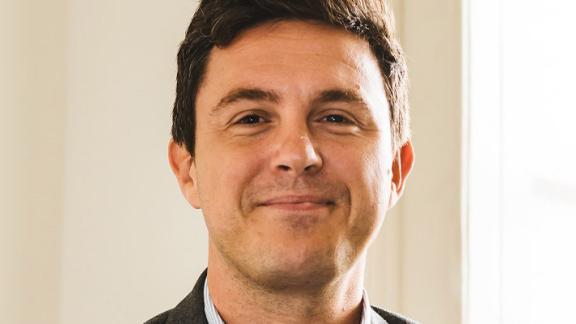NHS Reset: New approaches in rehabilitation

NHS Reset is an NHS Confederation campaign to help shape what the health and care system should look like in the aftermath of the pandemic.
In this blog, the MS Society's Phillip Anderson explores what's needed to bring about a fundamental shift in community rehabilitation.
“It’s really important for someone with MS to hold on to their independence for as long as they can, but this pandemic has taken it away from me somewhat.”
A sentence any charity would hate to hear from one of the people it is trying to help – just like any healthcare professional trying their best in extremely difficult circumstances. Yet this quote from Donna, who features in the MS Society’s new report Too Much to Lose , captures a sentiment we have heard all too often from patients and professional alike in reflecting on the impact the pandemic has had on rehabilitation services.
The MS Society recently worked with other charities and professional bodies to survey rehabilitation professionals in the UK about this impact.1 Seventy-five per cent of respondents said they were aware of a deterioration in the mental or physical health of their patients directly due to not accessing therapy, while 44 per cent said their service had cancelled over half of appointments for people with progressive neurological conditions. These findings are echoed in Too Much to Lose with seven in ten (69 per cent) of people with MS unable to see a rehabilitation professional since the start of the pandemic when they needed to.
Thinking different
In many ways, the challenges we face around rehabilitation are a microcosm of those facing the NHS as a whole: people on ever-lengthening waiting lists caused by the pandemic, with a seismic shift to virtual appointments seemingly the only hope to ever catch up.
But rehabilitation can be different.
While crucially some support requires a professional to work hands-on with their client, much of rehabilitation relies on self-management – regularly doing exercises recommended by a physiotherapist or following a particular diet, for instance.
The MS Society and the Nuffield Trust jointly published a report identifying strong potential for digital tools to help people with MS to self-manage symptoms like fatigue, cognitive difficulties and pain. We noted that in many cases these tools worked best when combined with interaction with health and care professionals, rather than in isolation.
Similarly, like many charities, the MS Society provides direct services to its community for things like physical activity and symptom management. One thing we hear consistently from our staff dedicated to these projects: it helps enormously if a person with MS has been to see a healthcare professional already and can relay the results of that consultation.
This points the way to a different approach to community rehabilitation, one where we go beyond using technology simply to run digital versions of traditional face-to-face care, and use it to forge digital collaborations that would simply not be possible in an analogue world. In this vision, healthcare professionals are not only vital support in themselves, but also touchpoints that greatly improve the effectiveness of wider efforts to maintain independence, supported by family, charities and crucially patients themselves – coordinated using digital tools like smartphone apps.
We support calls from the Royal College of Occupational Therapists and many others for a new national rehabilitation strategy – eloquently set out in Karin Orman’s great NHS Reset blog on rehabilitation for people with dementia – and we think the best way to drive that would be to create a national clinical director for rehabilitation. If a new strategy is done well, it can ensure not just that community rehabilitation receives the national investment commensurate with its vital role, but position this as part of a wider shift to greater collaboration focussed on empowering patients to take more control of their own health.
The short term
Of course, this kind of fundamental shift will take time to achieve and will require focus and investment at national level. To lay the groundwork for it now, I would pose three questions to any local commissioner of rehabilitation services:
1. Do you understand the providers in the independent and charity sector (both national and local) and the ways they can help your clients?
2. Are you evaluating the types of virtual appointments that are and are not working and what impact this is having on health inequalities?
3. Are your professionals hearing about innovation from other parts of the country? Professional bodies have a huge role to play here, but so too do condition-specific networks for more specialised roles, such as the MS Society’s
professional network
.
Phillip Anderson is head of policy at the MS Society .
1 Report to be published shortly. We conducted a survey of 149 rehabilitation professionals in UK. The survey was available online from 26 August to 16 September. The survey was developed in consultation with a number of different health professionals and professional bodies and shared by the MS Trust, Therapists in MS, MS Therapy Centres, Parkinson’s UK, Motor Neurone Disease Association, Chartered Society of Physiotherapy, Royal College of Occupational Therapists, Royal College of Speech and Language Therapists, Sue Ryder and Association of Chartered Physiotherapists in Neurology.


